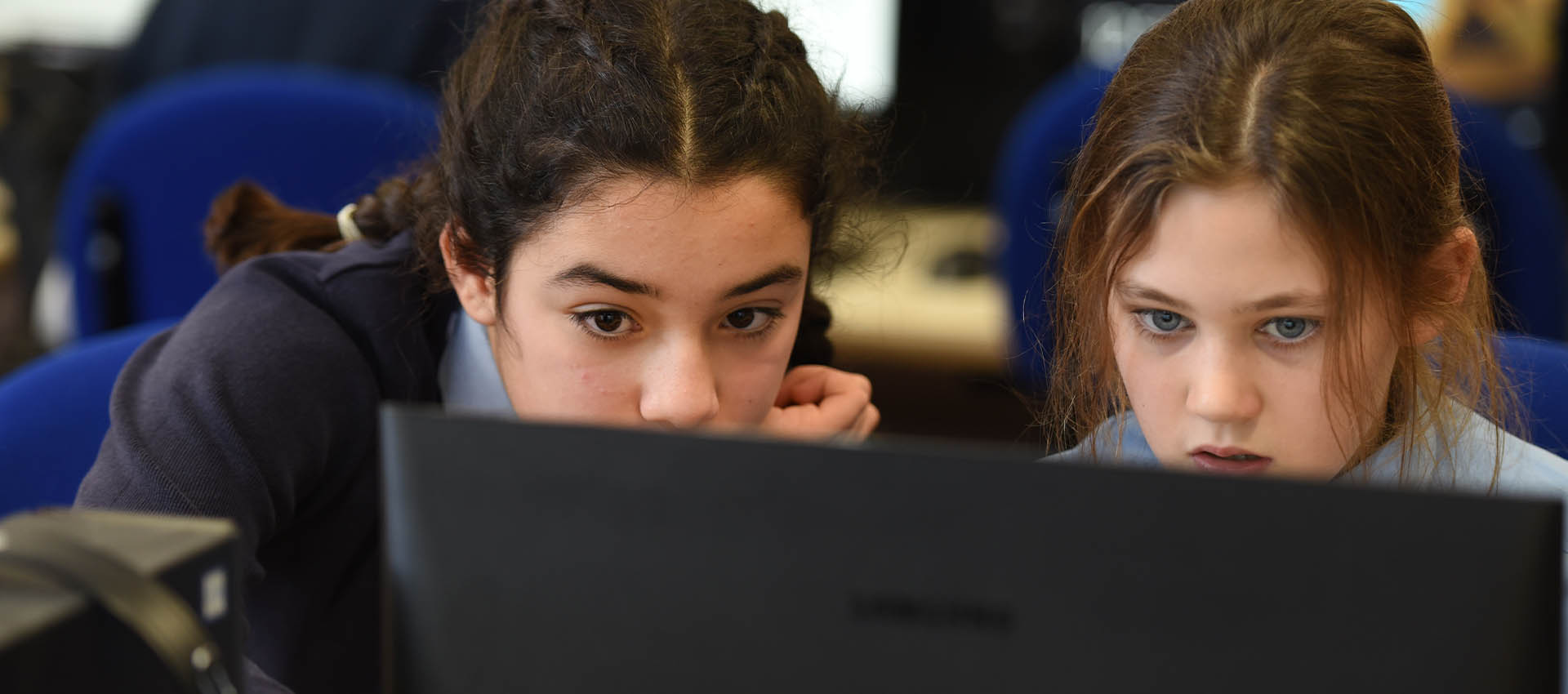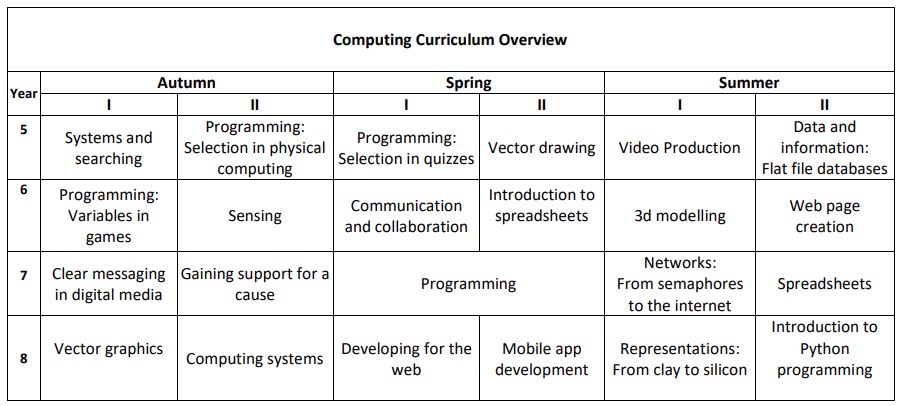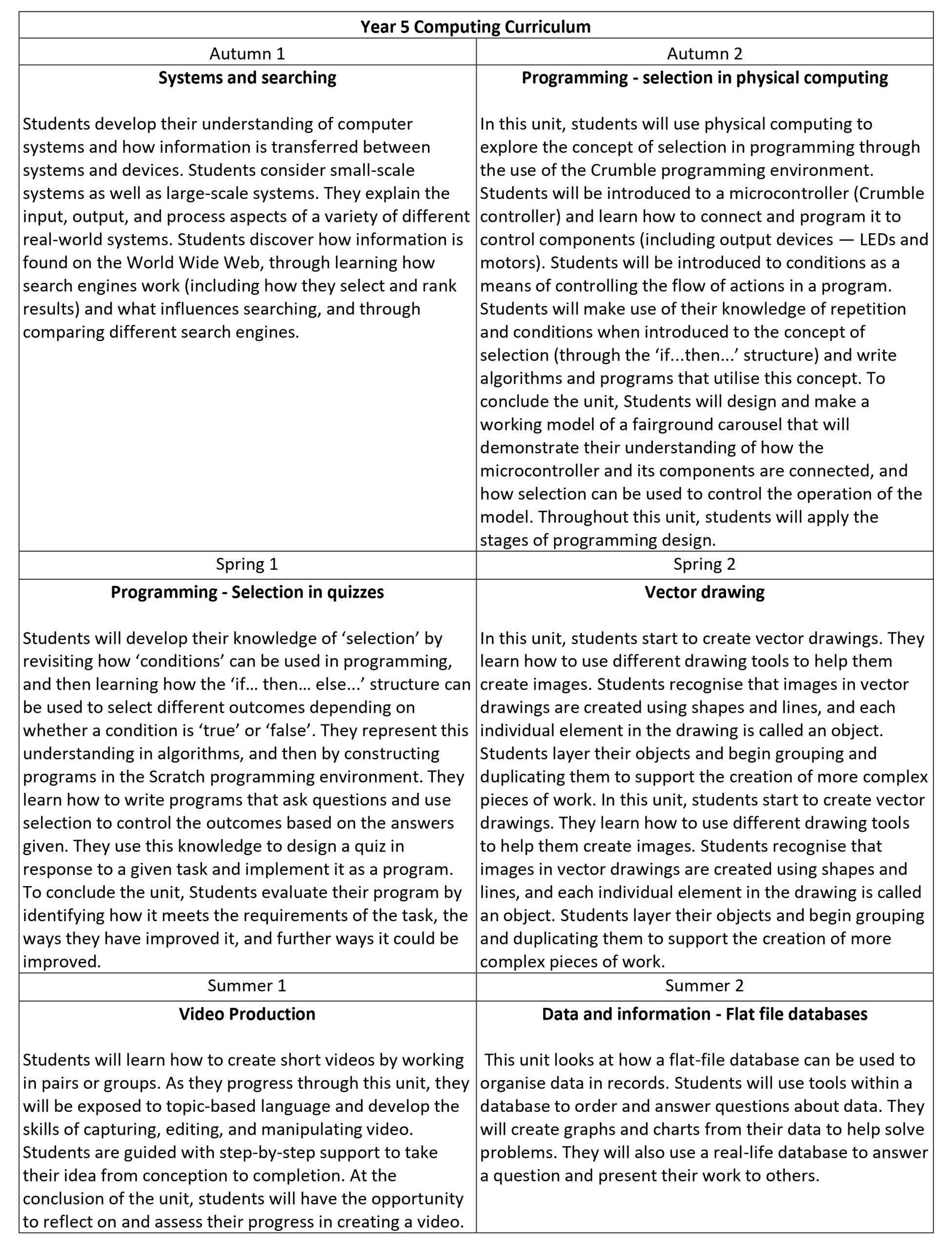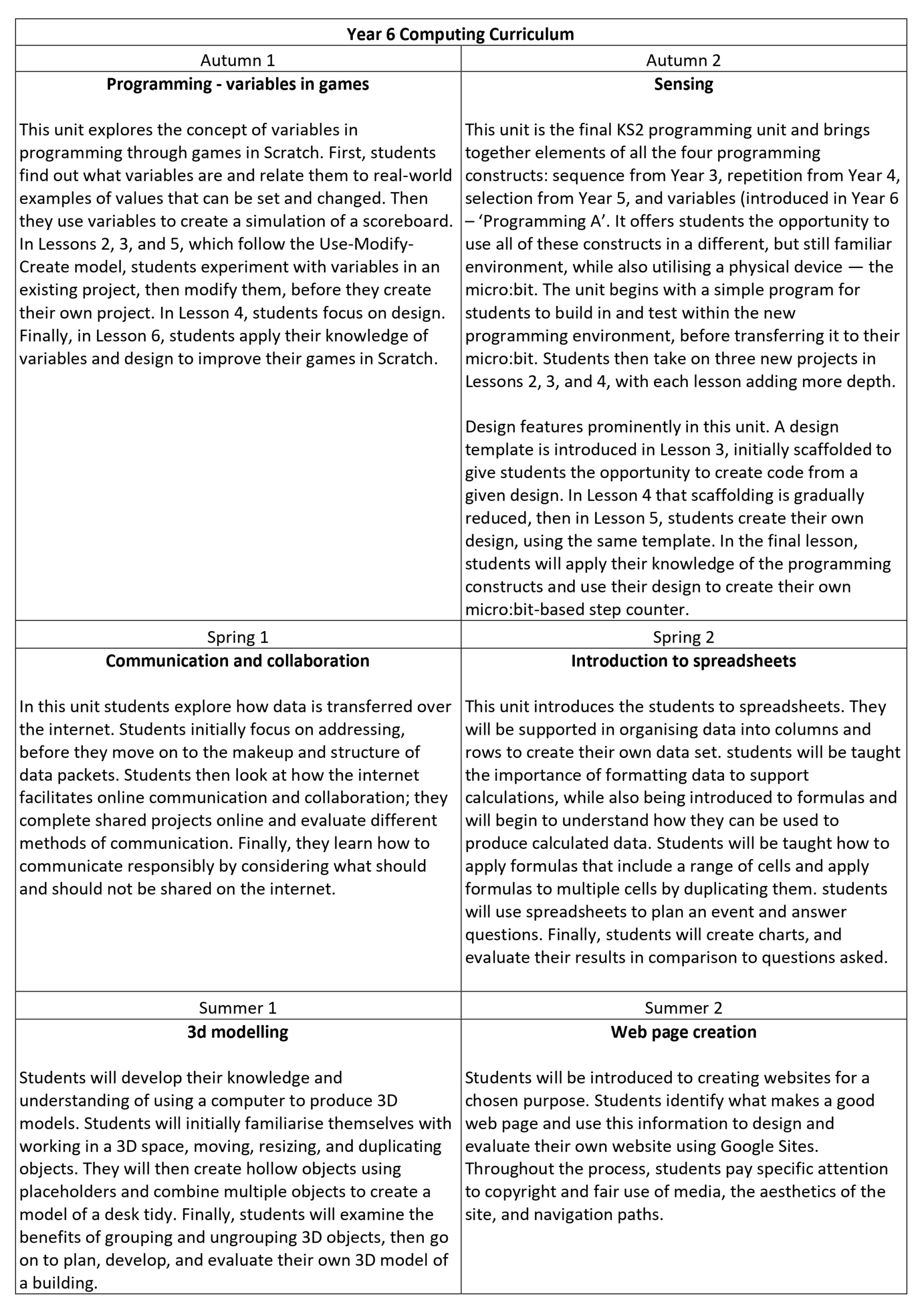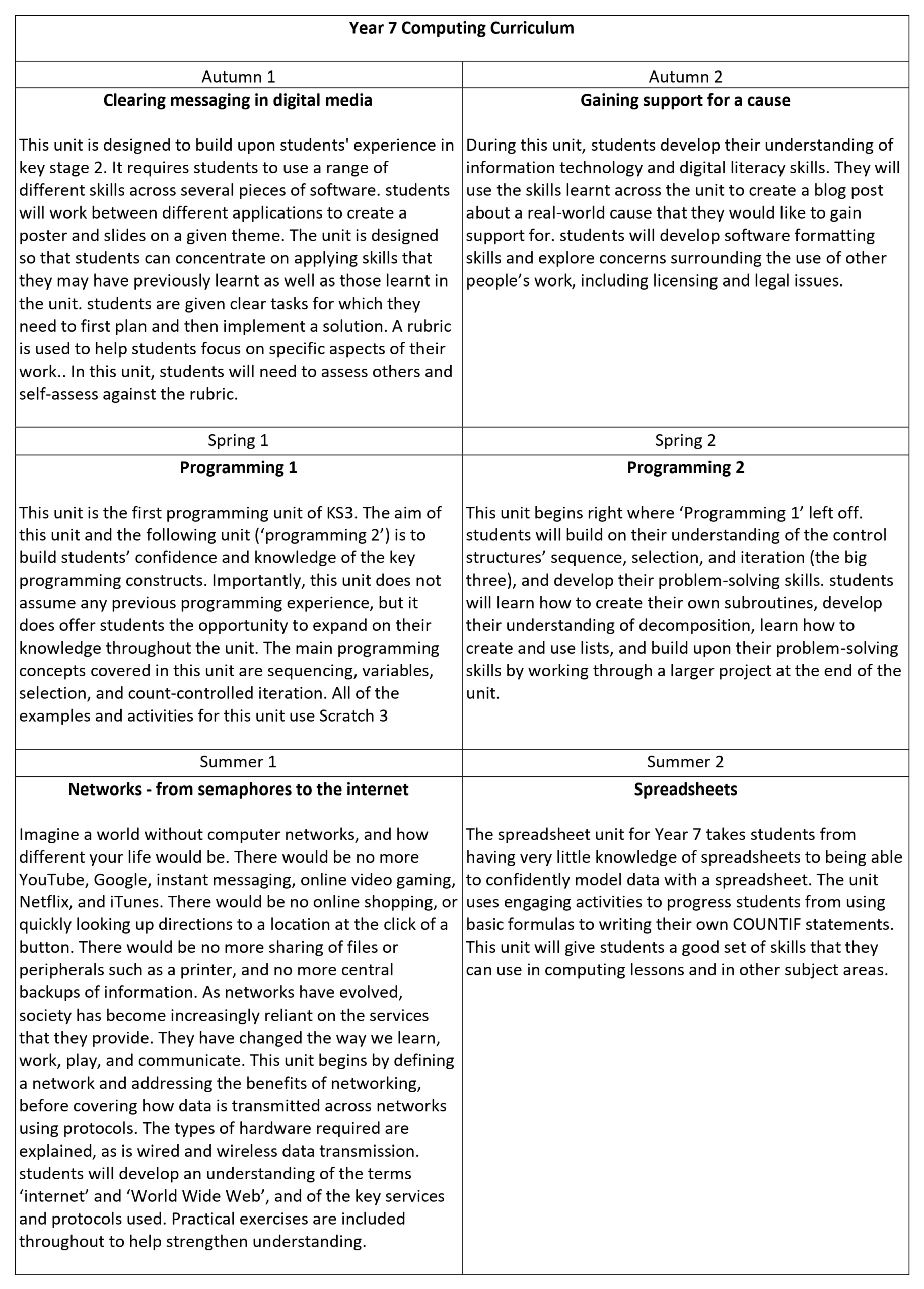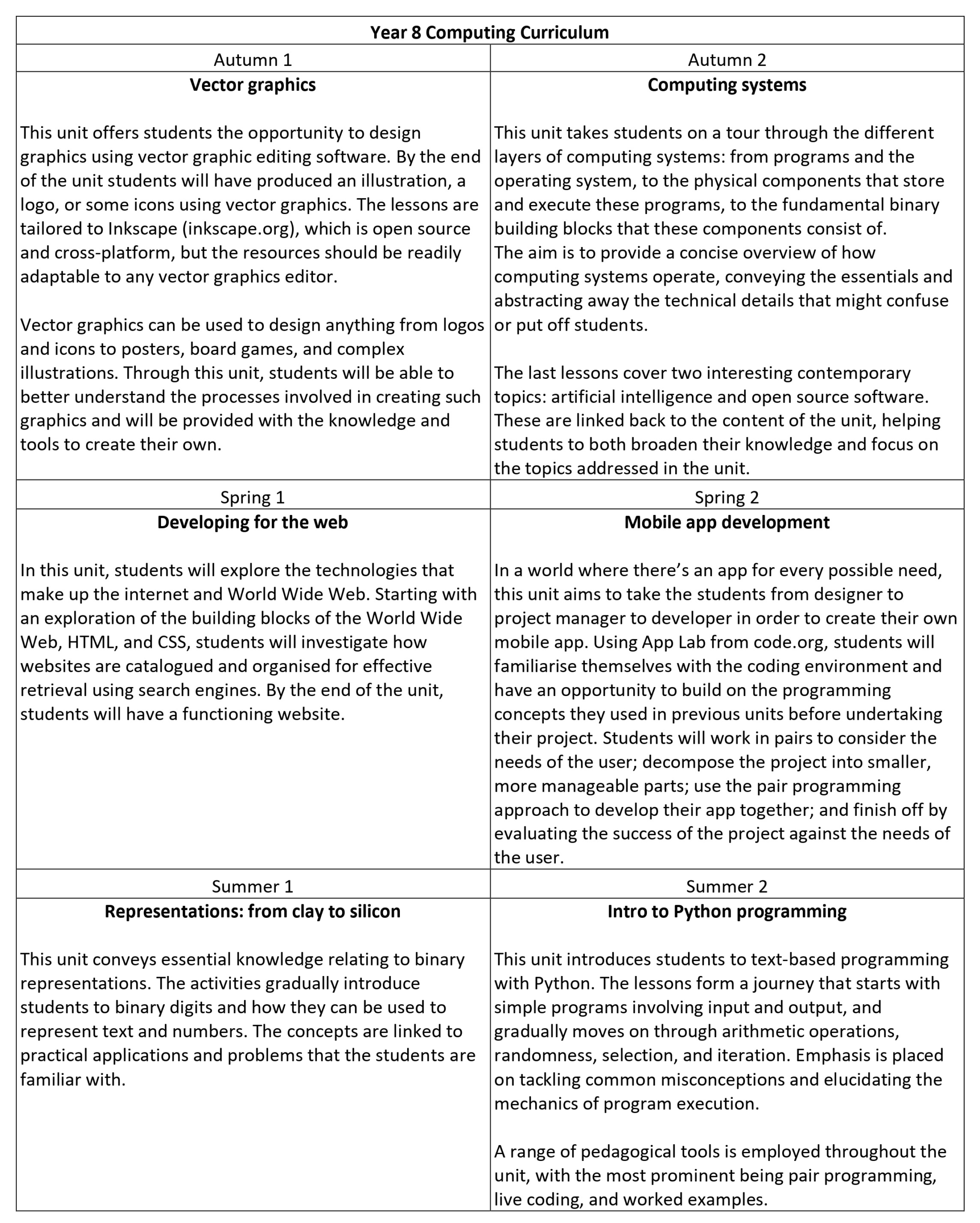Computing
At Ralph Sadleir, we believe learning Computing is important because:
Digital Literacy: In today’s digital age, basic computing skills are essential for functioning in society. Teaching students how computers work, basic programming concepts, and digital safety enhances their digital literacy.
Problem-Solving Skills: Computing involves problem-solving, logic, and critical thinking. Learning programming languages and basic coding concepts helps develop these skills.
Creativity and Innovation: Computing encourages creativity by enabling students to create games, animations, and digital art. It empowers them to express their ideas in new and exciting ways.
Future Career Opportunities: Proficiency in computing opens up a wide range of career opportunities in fields such as software development, data science, cybersecurity, and robotics.
Adaptability: Technology evolves rapidly, and understanding computing concepts equips students with the adaptability to navigate future technological advancements confidently.
Collaboration and Communication: Many computing projects require teamwork, fostering collaboration and communication skills. Working on projects together encourages sharing ideas and learning from one another.
Empowerment and Independence: Computing skills empower students to understand and control the technology around them, fostering independence and confidence in their abilities.
Global Connectivity: Computing skills enable studens to connect with peers worldwide, participate in online communities, and access a vast amount of information and resources available on the internet.
Protecting Personal Information: Students need to understand the importance of keeping personal information private online. Leanring about the risks of sharing personal details can help prevent identity theft, cyberbullying, and online predators.
Cyberbullying Awareness: Internet safety education should include discussions about cyberbullying, its impact, and strategies for dealing with it. It is important that students know how to recognize and respond to cyberbullying can help create a safer online environment for everyone.
Safe Social Media Use: If students are using social media platforms, they must understand the importance of privacy settings, controlling who can see their posts, and being cautious about accepting friend requests from strangers. Students must learn how to communicate safely online, including being respectful to others, thinking before they post or share, and understanding the potential consequences of their words and actions.

